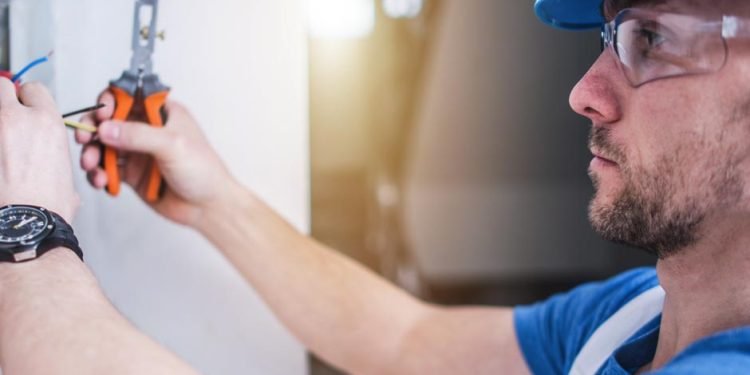With electric vehicles becoming more available and accessible, more people are taking advantage of this upgrade in the automotive industry for its many benefits. This also means that there’s an increased need for EV charging points. While there are available public charging points, homeowners often prefer a more convenient way to charge their vehicles without leaving their homes or going through the hassles of a public charging point. As a result, many opt for an EV charger installation in their home. To do this safely an EV charger electrician would be needed.
Read on to find out who an EV charger electrician is and what they do.
Who Is An EV Charger Electrician?
An EV charger electrician is an electrician who undergoes additional training to understand the specifics of EV vehicles and their charging solution. These kinds of electricians have experience installing EV chargers, they also have experience in navigating through complex EV charger installation processes. If you are in the area, a qualified Richmond electrician (or an electrician from elsewhere) can provide specialized installation services tailored to your EV charging needs.
What Does An EV Charger Electrician Do?
There are several things an EV charger electrician can do. But majorly, they can help people who are looking to install charging points for their electric vehicles in their homes.
An EV charger electrician can take the following steps in helping you install an EV charger in your home.
- Map Out The Location
An EV charger electrician will help you determine the best spot to install the charging point. Should it be inside your garage? Driveway? Or somewhere else? Whichever location you choose, you’ll want to ensure that the distance between the charging point and your car’s socket is less than 5m to enable easy charging as charging cables are usually about 5m long. Also, some models of EV chargers require you to install an earth rod although this is less common now. However, if your model requires an earth rod, your electrician will find a suitable spot close to the charger for the installation of the earth rod.
- The Cable Run
The cable run refers to the route and connecting distance between your electrical cable and fuse box (fuse boxes are mostly found close to the electricity meter). Cable run is another factor that can influence where and how your charger will be installed. To begin with, the electrician will determine the right type of cable suitable for your charger, they will also determine the best route for your cable to run.
- Fuse Box Inspection
The electrician would also inspect your fuse box to determine if there’s a ‘spare way’ on the fuse box to install the trip switch that would connect to your charger. If there is none, the electrician may have to install a separate fuse box, otherwise known as a garage board, which would house the trip switch for your charger.
- Drilling and Clipping
Once the first three steps mentioned above have been completed, the electrician would begin the actual process of installing your charger. The electrician will drill a hole into the wall to attach the charger and cable. Once the charger and cable have been secured in place, the electrician will now install the trip charge into the fuse box (either the main fuse box or a separate pre-installed fuse box). This process would require the power supply in your home to be turned off until it’s completed.
- Testing And Setting Up The Installation
This is the final step of your EV charger installation. Recent models of EV chargers need to be connected to the internet for proper functioning. If your charger requires an internet connection, your electrician would connect it to your home’s broadband router either through a wired ethernet or through a wireless connection. After this, the electrician would carry out final electrical checks to ensure everything is in place and working properly. Once this is certified, the electrician will now help you download the charger’s smartphone app to your mobile phone and help you configure it as well. This app enables you to control the charger’s settings. For instance, it can help you set a charging time that coincides with a cheap or off-peak tariff.
While EV charger installations are not difficult, they can be complex at times depending on several factors. To ensure that the process is done properly and in a risk-free manner, it’s always advisable to contact a certified EV charger electrician. Also, if you encounter any challenges with your home’s EV charger in the future, you can always refer back to an EV-certified electrician.












